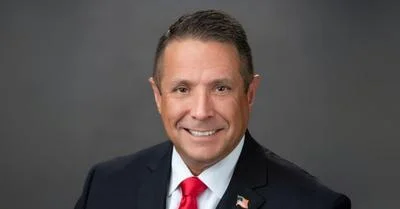EdChoice Director of Policy Jason Bedrick | EdChoice
EdChoice Director of Policy Jason Bedrick | EdChoice
Florida schools offer a wide range of options for parents and achieving educational excellence, and the results show this has led to fairer outcomes for all students no matter their economic or social background, according to one educational choice advocate.
EdChoice Director of Policy Jason Bedrick said Florida has long been a pioneer in providing families with choices for students' educations.
“In 2001 Florida became the third state, behind Arizona and Pennsylvania, to provide tax-credit scholarships to low- and middle-income families,” Bedrick said. “In 2014 Florida became the second state, behind Arizona, to provide K-12 education savings accounts [ESAs] to students with special needs. ESAs empower families with a high degree of freedom and flexibility to customize their child’s education.
“Not only is Florida among the first states to pioneer educational choice, it has also gone bigger and bolder than most states,” he said. “With more than 100,000 scholarship students, Florida’s scholarship program is now the largest in the nation. Additionally, there are more than 33,000 students receiving Family Empowerment Scholarships. Florida currently has the second-highest ‘EdChoice share’ in the nation, behind Arizona.”
The “EdChoice share” is the total number of a state’s educational choice program participants divided by the total number of K–12 students in the state.
“Floridians are happy with the high degree of educational choice that the Sunshine State provides,” Bedrick said. “Our latest monthly tracking poll shows that 67% of adults nationwide support ESAs once the concept is explained to them. In Florida the level of support is even higher than the national average, with ESAs garnering 71% support among all Floridians and a whopping 80% support among parents of K-12 students.”
There is strong evidence that educational choice leads to higher academic performance, especially among the most disadvantaged, Bedrick said.
“A recent study from the University of Arkansas observed that it is 'striking that the largest academic gains in Florida are among disadvantaged student subgroups that have been eligible for private choice programs for approximately 20 years,’” he said.
Researchers at Harvard and Stanford found that Florida students made the second largest educational gains of any state over the past 25 years, while simultaneously increasing spending less than any other state.
Education Week ranks Florida fourth in both K-12 educational achievement and equity in education.
A study found that through Florida’s school choice scholarship program, students of all races and economic backgrounds were more likely to pursue higher education than their public school counterparts.
A recent National Bureau of Economic Research study found that Florida K-12 students showed significant academic improvement after school choice was adopted due to competition in Florida’s educational system.
Bedrick said this approach is working at multiple levels.
“Not only is school choice benefiting participating students, but it also appears to be having a positive effect, via competition, on the performance of traditional district schools,” he said. “The gains made by Florida students from low-income families and those with disabilities — the two groups with the greatest access to educational choice policies — far outpace the national average from 2003 to 2019.
"As the Arkansas study’s authors note, ‘the exciting surges in Florida’s academic performance over the past two decades came among disadvantaged students eligible for private choice programs.’”
Nearly half (48%) of Florida K-12 students attend a school other than their zoned public school.
On May 11, Gov. Ron DeSantis signed House Bill 7045 to expand school-choice eligibility to low-income students, and prioritizes military, foster and adopted students.
“This legislation creates historical levels of flexibility in both schooling and educational services for millions of low-income families and families of students with unique abilities,” DeSantis said in a release. “As we have seen for more than 20 years, these scholarship programs have elevated so many children and families. I am thankful to Sen. Manny Diaz and Reps. Randy Fine and Jason Fischer [all Republicans] for sponsoring this inclusive legislation to ensure that all of Florida’s students have the best chance for success.”
Bedrick said there are several noteworthy advancements.
“In 2021 Florida lawmakers expanded the state’s voucher, tax-credit scholarship, and ESA policies,” he said. “More students will now be eligible for the tax-credit scholarships and Family Empowerment Scholarships than ever before. They also merged the state’s two educational choice policies for students with special needs — the McKay voucher and the Gardiner education savings account — into a new ESA policy that is a part of the state’s Family Empowerment Scholarship policy.
“They also expanded eligibility for the FES to include students who are dependents of a member of the U.S. armed forces and adopted children, and the scholarship values were increased to 100% of the state’s per-student allocation for public education,” Bedrick said. “These policies will greatly expand educational opportunity for Floridian children and will lead to greater educational equality and excellence.”



 Alerts Sign-up
Alerts Sign-up